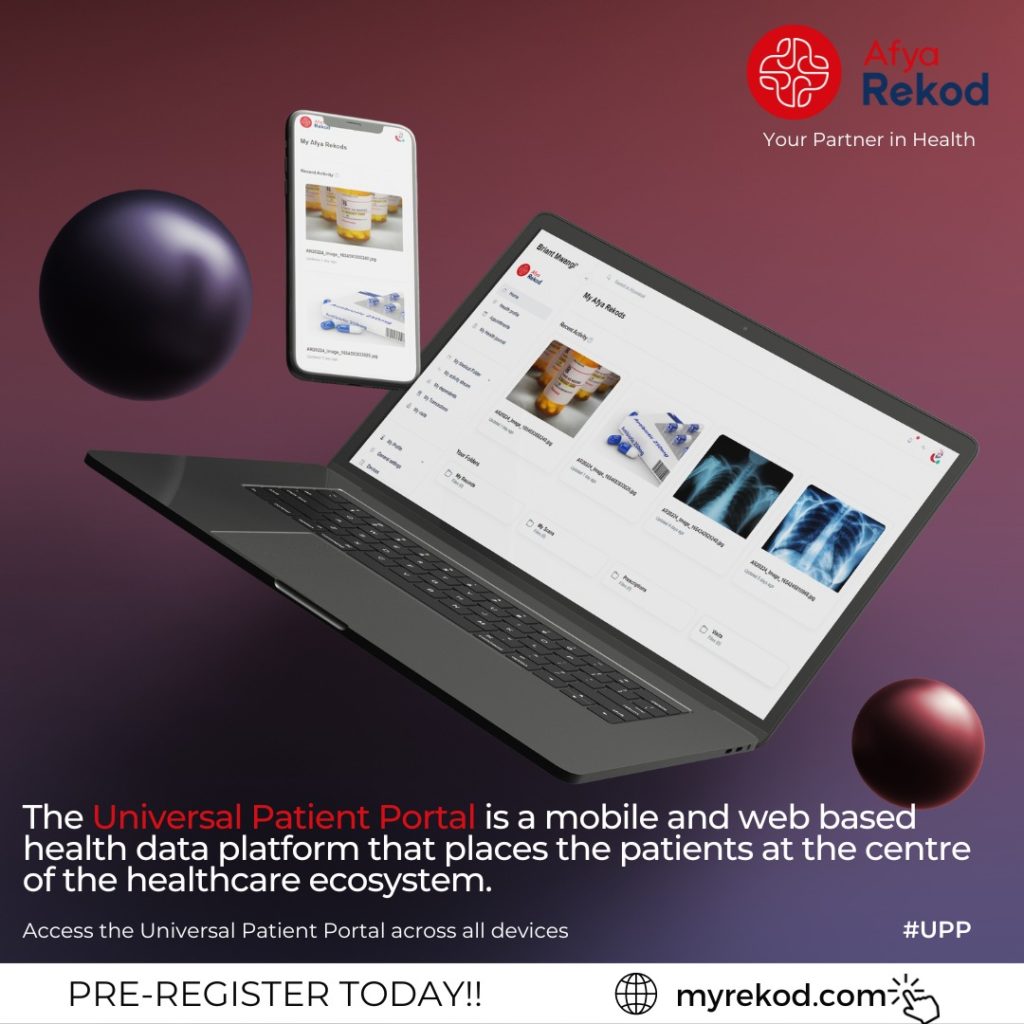AfyaRekod has launched the fully automated Universal Patient Portal in South Africa and it is ready to change the face of patient care across the country, Africa, and the world.
Using block-chain driven technology the Universal Patient Portal is a secure central, mobile platform where patients and the medical professionals treating them have real-time access to their health data and medical history, not only ensuring effective ongoing medical management but critical, timely information in an emergency.
Initially developed and launched in Kenya, AfyaRekod is the brainchild of CEO John Kamara. An Adanian Lab start-up, AfyaRekod, was founded in 2019. Kamara saw first-hand how the lack of medical records and static data could lead to poor medical management when a friend died having received the wrong medical intervention in an emergency. Using seed funding from Mac Venture Capital and Next Chymia. Kamara built an AI platform that would track health data, aimed at bridging the gap between health care and treatment, anywhere, anytime for patients, medical professionals, providers, and organizations.
“AfyaRekod is a game-changer and has given me a voice in my own medical care,” says Vanessa Perumal, Managing Director of JT Communication Solutions and AfyaRekod ambassador.
“As a patient who has survived a rare form of cancer and a full laryngectomee, I have a long list of operations, medical interventions, and prescriptions to my name, now I am safe in the knowledge that wherever I am, whatever medical practitioner is treating me, here or internationally, I have complete access to my medical information and no one has to hunt down medical records,” Perumal explains.
Medical records are a vital tool in managing health, notifying healthcare professionals of medications, chronic illness, past problems, and procedures and ultimately allowing them to determine the most accurate course of treatment. Misdiagnosis is serious and can lead to a delay in treatment of the real condition. An IOM report released in 2015 indicated that around 12 million instances of patient misdiagnosis occur annually in the USA, a country with a well-developed healthcare sector. Misdiagnosis is preventable, but only if health records are accurate, and mobile.
The pandemic has pressed the fast-forward button, bringing urgency to health data accessibility and analytics. This is a global problem that needs to be innovatively addressed by patient-centered health care solutions. For the best care, patients should have sovereign rights of ownership of their information and it should be mobile and easily accessible. AfyaRekod ensures this is a reality.
The subscription-drive Universal Patient Portal can be accessed via the web portal via myrekod.com as well as the mobile app (android and iOS). It is secure, consolidated, and allows patients consistent access to their health records, as well as access to a marketplace of various health services within the ecosystem in real-time.
Over and above patients securely managing their health records, including prescriptions and hospital visit summaries, the AfyaRekod Universal Patient Portal offers secure decentralized, multilingual, and intelligent telehealth solutions, health resources, symptom trackers, reminders, and notifications, as well as mobility of the record across multiple channels and devices. Though any patient can use these tools, it is especially useful for patients with chronic illness, parents, pregnant women, and patients with hereditary diseases.
The AfyaRekod platform extends to include doctors, offering a digital clinic with a B2B platform, tele-pharmacy tool, and e-prescription platform. For providers, the platform has multiple functionalities such as hospital management, patient management, knowledge management, and inventory management, as well as an AI-driven reporting tool, that allows organizations to make strategic decisions, predictions, and early identification using data analytics. NGOs and other related organizations can register and manage their target groups on the platform. AfyaRekod has already onboarded over 50 hospitals.

